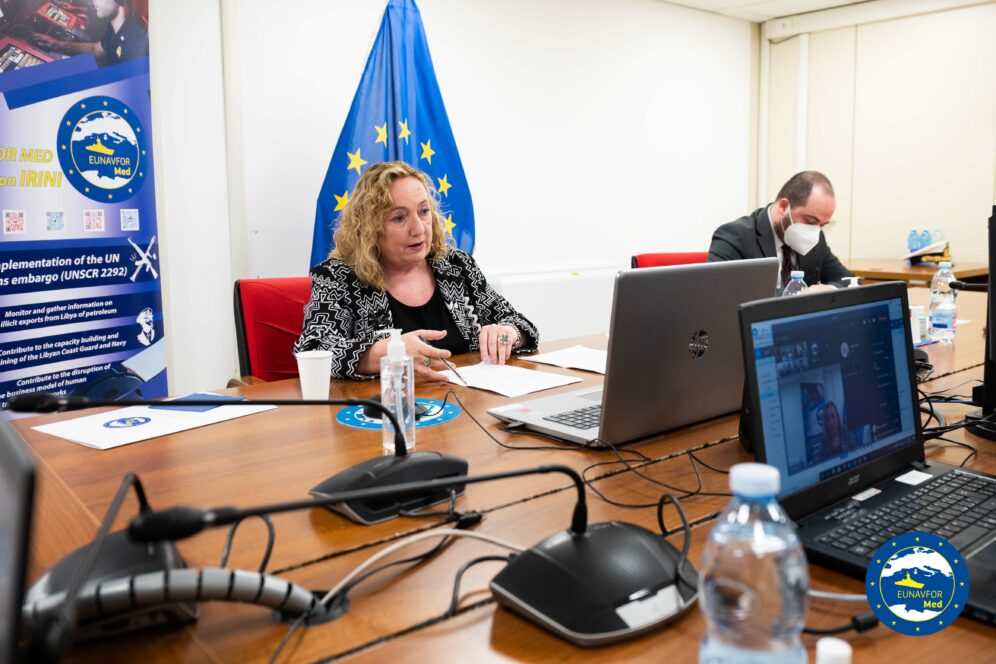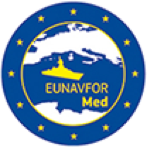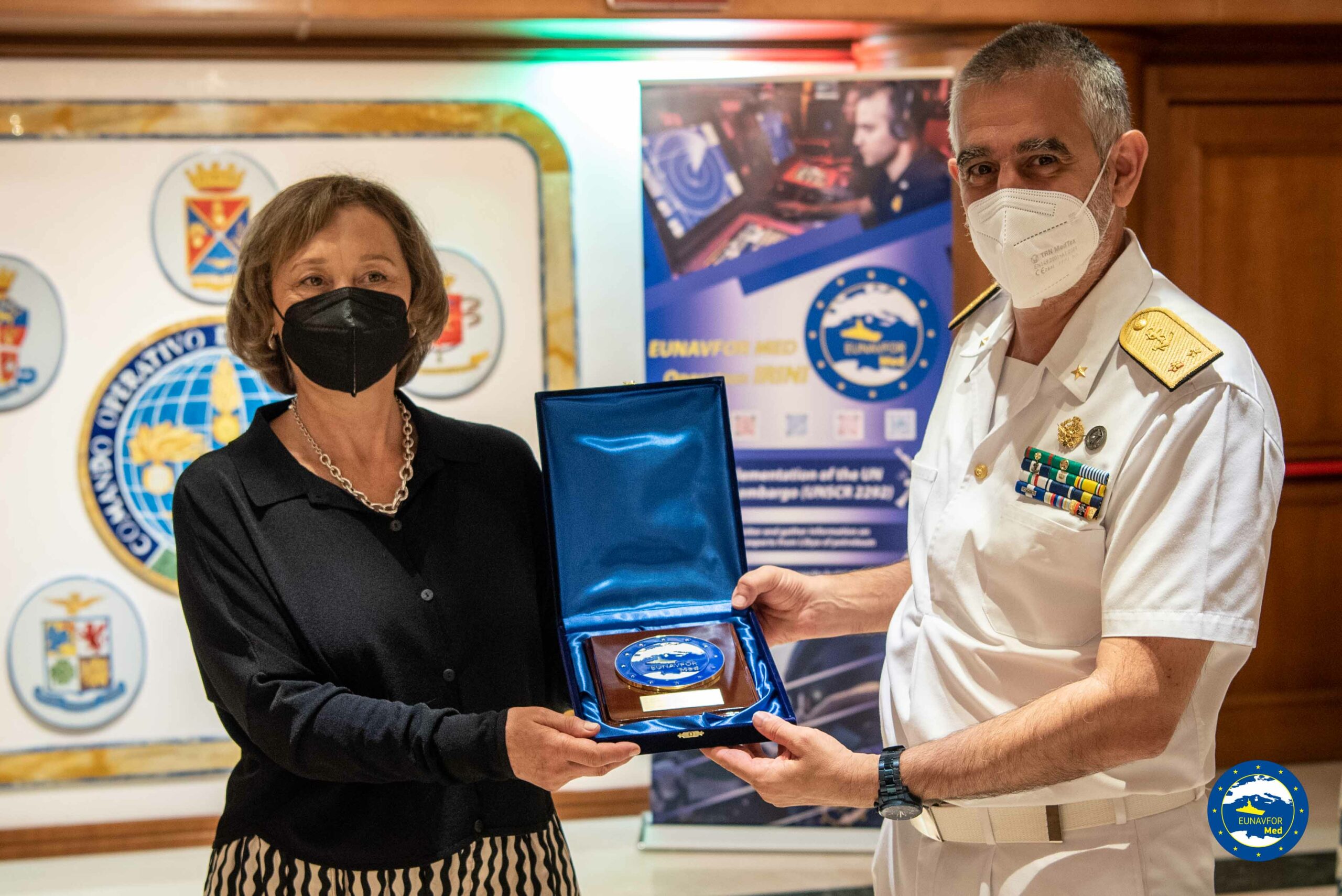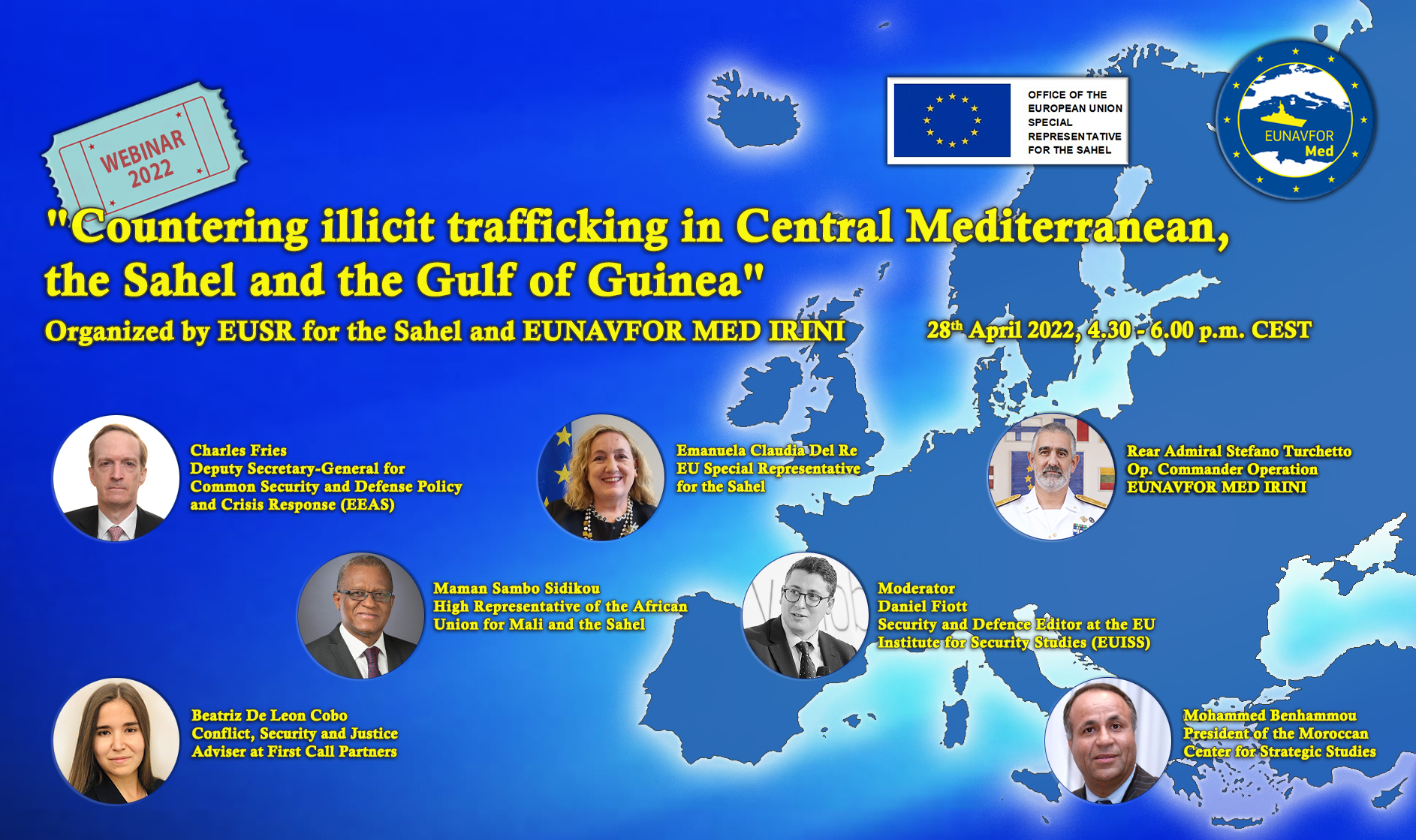WEBINAR: Countering illicit trafficking in the Central Mediterranean, Sahel and the Gulf of Guinea
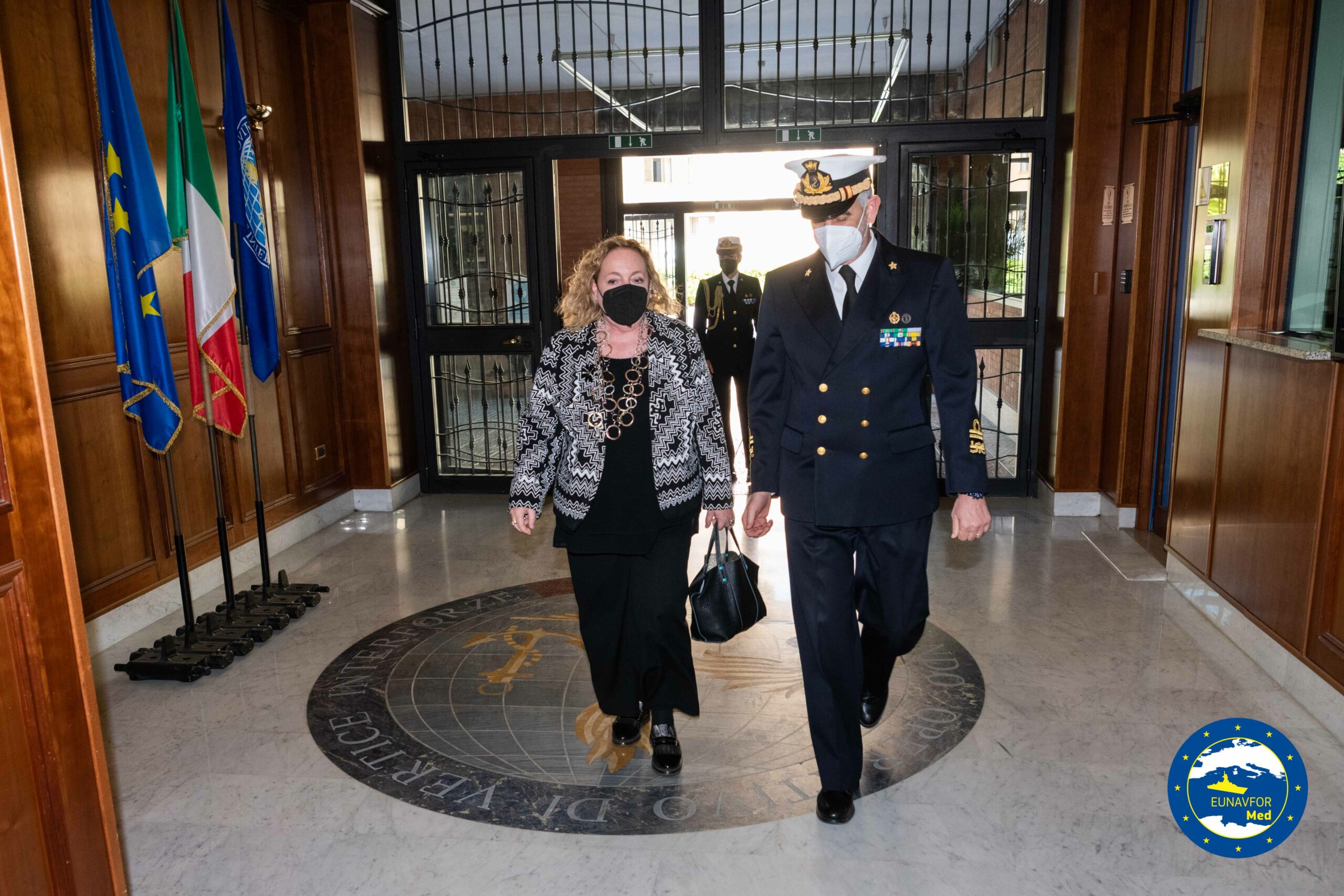
The webinar on “Countering illicit trafficking in the Central Mediterranean, Sahel and the Gulf of Guinea” was held this afternoon, jointly organized by EU Special Representative for the Sahel and by Operation EUNAVFOR MED IRINI.
The event, live streamed on the official social network accounts of EU Special Representative for the Sahel and Operation EUNAVFOR MED IRINI, hosted very high-level speakers and drew a whole picture of the complex scenario experienced and new challenges in Mediterranean area, Sahel and Gulf of Guinea.
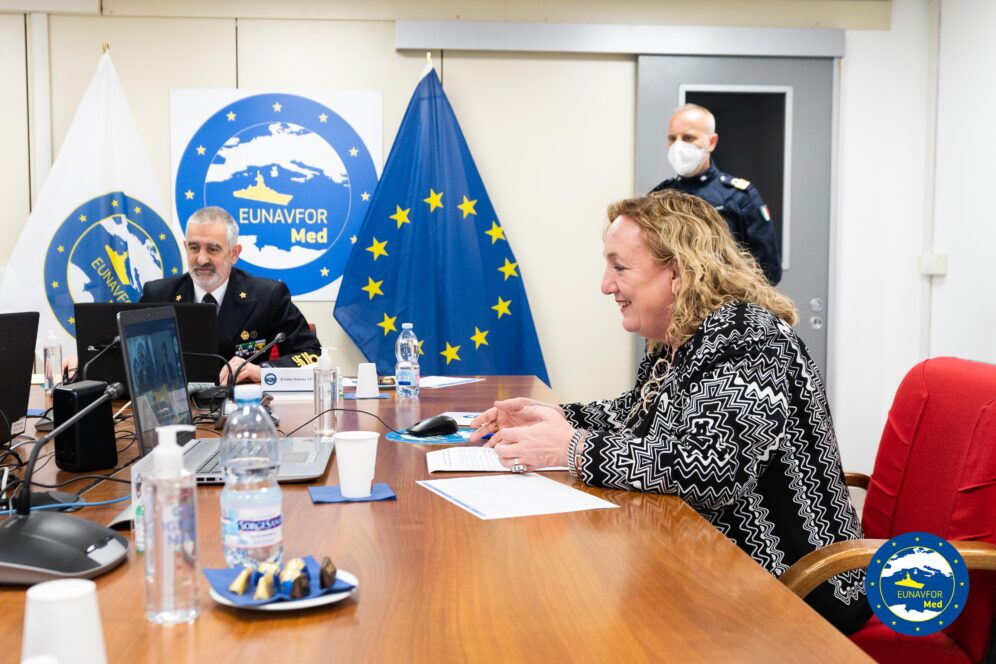
“IRINI’s activities are part of the integrated European approach involving political, military, economic and humanitarian lines of effort to stabilise Libya. Quoting the High Representative and Vice President of the European Commission, Mr Borrell, IRINI is not the solution to the Libyan crisis, but an important tool in order to set the conditions for diplomacy to enable a permanent solution for stability in Libya. Although the arms embargo is our primary task, the others are not less important on the international stage and for their effects on the Central Med Maritime Security and Libya’s, but I would say also, the Sahel’s stability”, said Rear Admiral Stefano Turchetto, EUNAVFOR MED IRINI Operation Commander, in the closing remarks of the event.
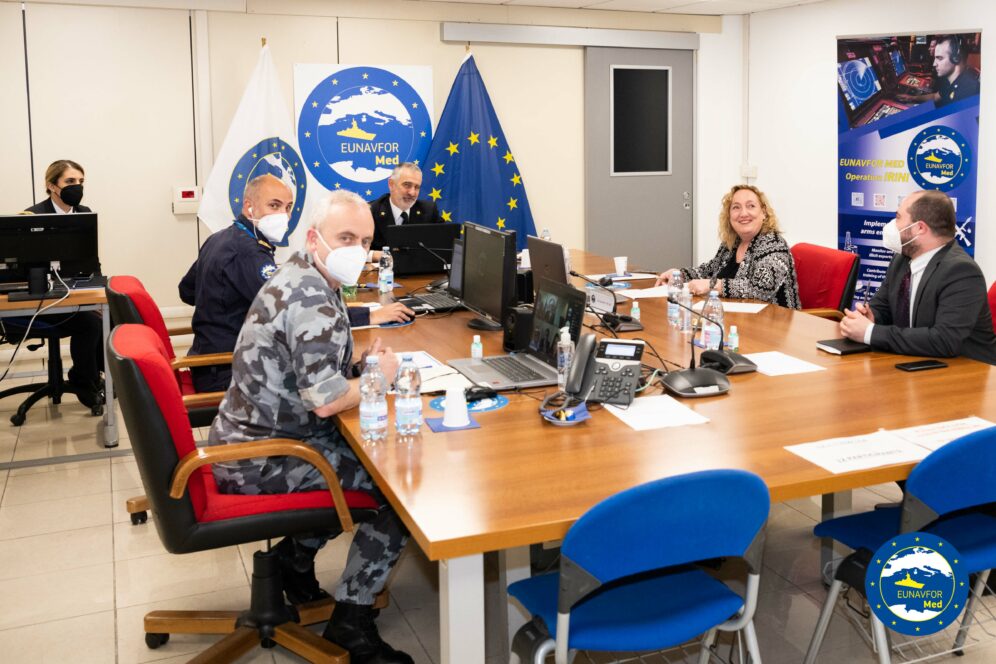
Nowadays, Northern Africa has taken on and on growing importance for our common foreign policy. Similarly, due to its geostrategic position, linking sub-Saharan Africa and the Mediterranean basin the Sahel region today is a key to our security.
Among the topics discussed during the webinar, chaired by Daniel Fiott, Security and Defence editor at the EU Institute for Security Studies (EUISS): is to highlight the analysis of the current Mediterranean-Sahel scenario, with all the implications for the stabilization of the border region, also tackling issues of illicit trafficking.
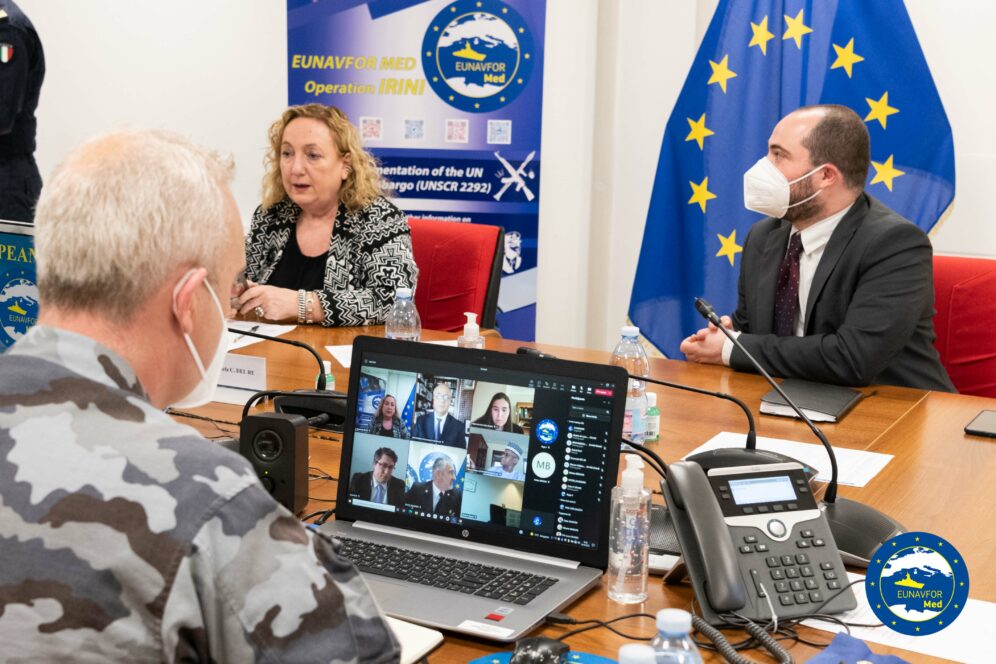
“We, as European Union, see opportunities in the Sahel, even amid instability, illicit trafficking, terrorist activity, and weak governance. We will continue to be a loyal and dedicated partner to the countries of the Sahel. We have to be coherent, and consistent as well, and firm in our approach. It’s very important to fix, in a very clear way, the principles in which strategy must be based. – Emanuela Claudia Del Re, EU Special Representative for the Sahel said in her speech – And in the case of the European Union, one of the major principles that really drives the general approach is the issue of ownership and mutual accountability. Ownership, of course, is the major ambition to make sure that whatever we do actually is managed and passes on the hands of the Sahelians. It’s imperative that the international community keeps responding to people’s urgent needs”, concluded Del Re, demonstrating how joint stabilization and security in these three interlinked areas – Central Mediterranean, Sahel and the Gulf of Guinea – is a valuable priority.
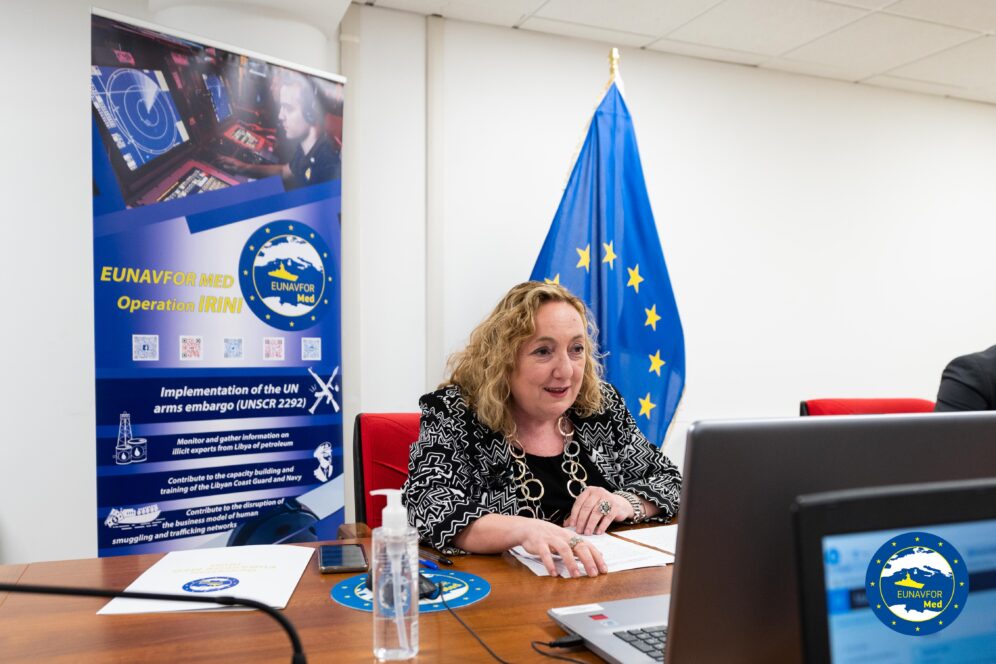
The relevance of this webinar was also testified by the participation of Charles Fries, Deputy Secretary-General for Common Security and Defense Policy and Crisis Response (EEAS): “The EU is adapting and stepping up its commitment as the threats and challenges faced by West Africa and the Central Mediterranean evolve. We are the first partner of the Sahel and we expect our commitment to remain for the long-term and extend to coastal states in order to contain and overcome the multiple crisis faced by the region”, he stressed in his remarks.
The discussion represented a unique opportunity to meet (although virtually) and exchange good practices, sharing skills and experiences among many and different actors involved in the area. Maman Sambo Sidikou, High Representative of the African Union for Mali and the Sahel, in his address to the conference, pointed out that: “Organized crime is one of the most potent threats to peace and security in West Africa, the Sahel, and beyond. I strongly encourage increased international and regional partnerships to strengthen national capabilities for comprehensive responses to trafficking – especially at community level, targeting women and youth in particular”.
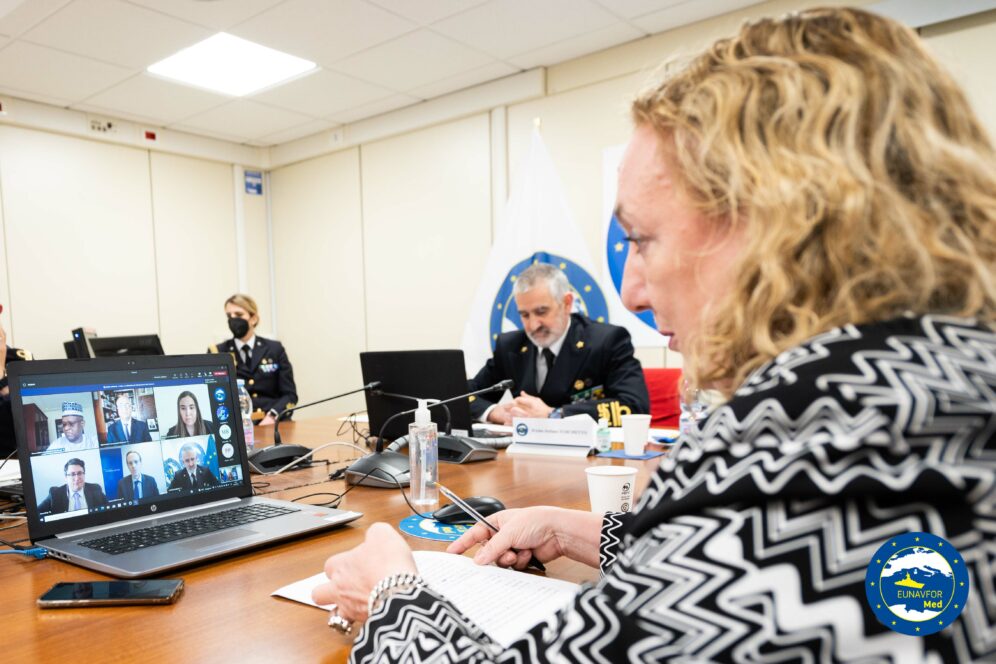
Mohammed Benhammou, President of the Moroccan Center for Strategic Studies, offered a high level strategic analysis on what is happening in the region, pointing out that: “In the last decade, transnational organized crimes in Sahel-Sahara and West Africa has become a matter of major regional and international concern. Transnational organized crime represents a sizeable challenge to the balanced and sustainable development of countries and also a threat to the overall stability and security of these countries, the region and neighboring regions. Countering illicit trafficking in these zones requires a collective response based on regional cooperation”.
Finally, Beatriz De Leon Cobo, Conflict, Security and Justice Adviser at First Call Partners, offered her perspective as a field researcher: “Human, arms and drug trafficking networks in the Sahel take advantage of existing trade routes, weakly controlled by governments, and the porosity of the Sahel’s borders to develop their activities. This cross-border threat can be defined as poly-criminal, as it involves and feeds on other criminal networks such as terrorist groups. The response to this threat must be multilateral and global, involving states from the Gulf of Guinea to the Maghreb, as without a consolidated strategy, the networks will move to the most fragile countries where they will continue to operate”.
